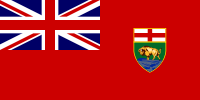Impaired Driving in Manitoba
Manitoba's Highway Traffic Act protects drivers by limiting the amount of alcohol allowed in a person's body while operating a vehicle. Drivers typically do not familiarize themselves with its rules until they have been arrested for breaking one of them. This article is meant to provide a quick reference for the consequences of impaired driving in Manitoba. Vehicles covered under the Highway Traffic Act include motor vehicles, railway equipment, boats and aircrafts.
License Suspensions
If a police offers pulls a driver and suspects that they have been drinking, the officer will ask the driver to exhale into a tube attached to a small device that measures the concentration of alcohol in the driver's blood. The legal limit for a driver's blood alcohol content is 0.08; however, drivers can still face legal action even if with a lower number. A 0.05 is considered a "warn" and is grounds for license suspension, as is failure of a physical coordination tests.
The immediate consequences of driving with a blood alcohol content between 0.05 and 0.08 are:
- First offense: 24 hour license suspension
- Second offense within a 10 year period: 15-day license suspension
- Third offense within a 10 year period: 30-day license suspension
- Fourth or more offense within a 10 year period: 60-day license suspension

If a driver registers a blood alcohol content over 0.08, their license will be suspended for three months. License suspension pertains to all vehicles driven on or off the road, water or sky. Refusing a breathalyser, blood sample or physical coordination test can result in an immediate three-month license suspension and vehicle impoundment.
What happens if I refuse by breathalyzer?
If a driver is convicted of refusing to give a breath or blood sample, they face the following consequences:
- First Offense: 2 year license suspension
- Second Offense: 7 year license suspension
- Third Offense: 10 year license suspension
- Fourth Offense: Lifetime license suspension if within 10 years of prior offenses
Manitoba Impaired Driving Penalties and Sentences
If a driver is convicted of impaired driving, they face the following consequences:
- First Offense: 1 year license suspension
- Second Offense: 5 year license suspension
- Third Offense: 10 year license suspension
- Fourth Offense: Lifetime license suspension if within four years of prior offenses
Cases of Harm or Death of Another Person
If a driver is convicted of impaired driving that results in harm or death of another person, they face the following consequences:
- First Offense: 5 year license suspension
- Second Offense: 10 year license suspension
- Third Offense: Lifetime license suspension if within 10 years of prior offenses
Drivers may be required to forfeit their vehicle if:
- The offense results in the bodily harm or death of another person
- The offender has three Criminal Code driving offenses within a five year period
Manitoba has different laws for drivers with less than five years of driving experience: such drivers may not operate a vehicle with any alcohol in their bodies. New drivers who break the law face at least a 24-hour license suspension and must attend a hearing with Driver Improvement and Control, where further consequences may be issued.
To re-obtain a suspended license, drivers must pay a $50 fee in addition to driving course and exam fees, which range from $40-170.
Mandatory Alcohol Education
Manitoba requires all drivers who receive a three-month suspension or two or more lesser suspensions to participate in alcohol abuse assessment and education. Assessments are given by the Addictions Foundation of Manitoba (AFM) at a cost of $625, paid by the offender. The assessment is based on the driver's answers to questions about their drinking habits and receive a treatment program in accordance with their needs. Programs range from a one day workshop to inpatient counseling.
Jail Time for Drinking and Driving
First offenders rarely receive jail time. Second offenders receive a minimum sentence of 30 days and 120 for each subsequent conviction.
Fines, Vehicle Impounding and Additional Conditions
Offenders must pay a minimum fine of $1000 for a first conviction. Once license suspension is over, offenders must use an ignition interlock device for at least a year. The driver must provide a breath sample with no trace of alcohol for the car to start. If caught driving a vehicle without an ignition device, the offender can face a $5,000 fine and a jail sentence of up to one year.
Vehicles of impaired individuals may impounded, and the driver must pay the towing and impoundment fees. The cost of impoundment is approximately $450 for 30 days and $900 for 90 days. Offenders usually pay higher driver's license premiums.
